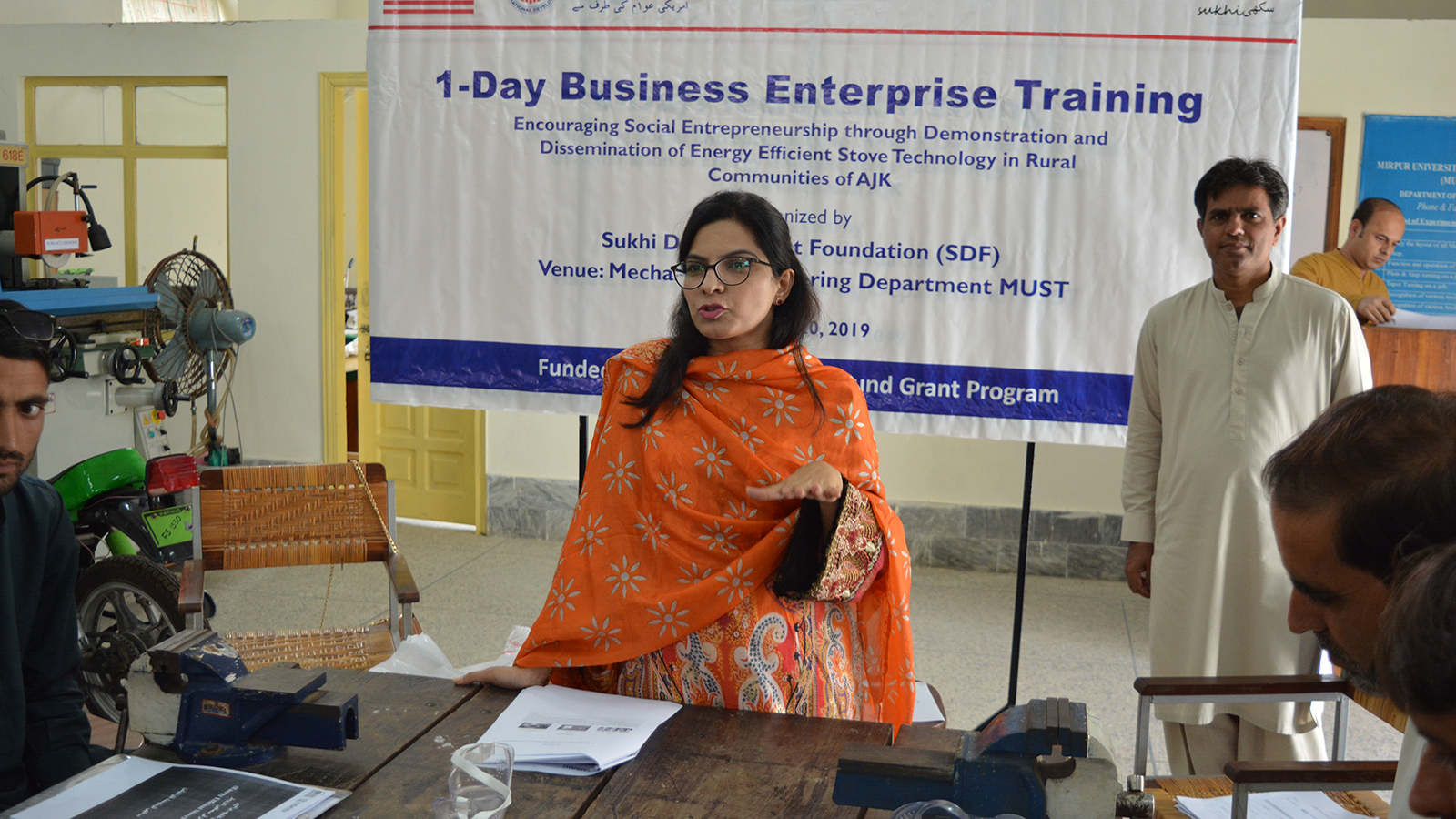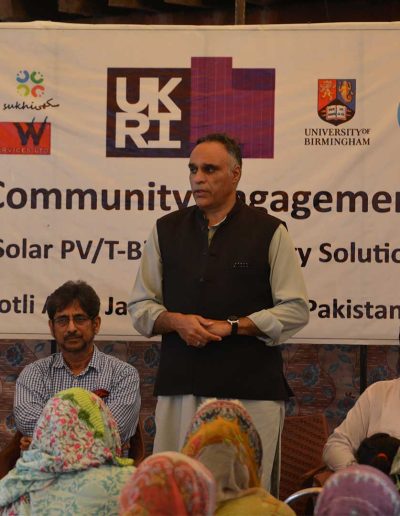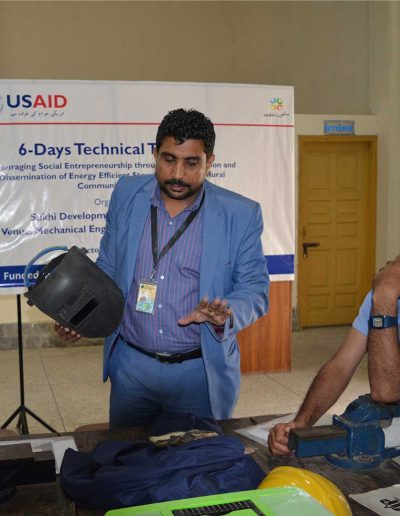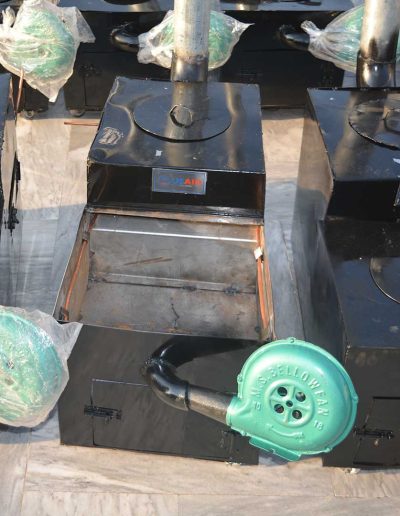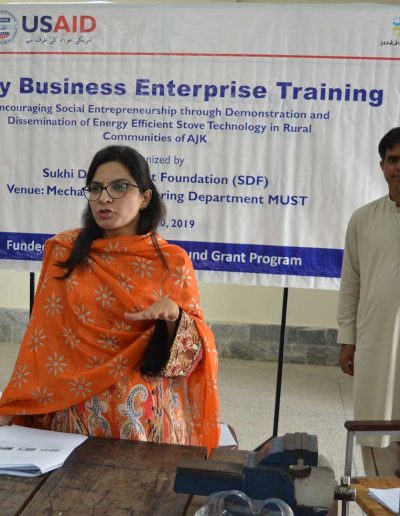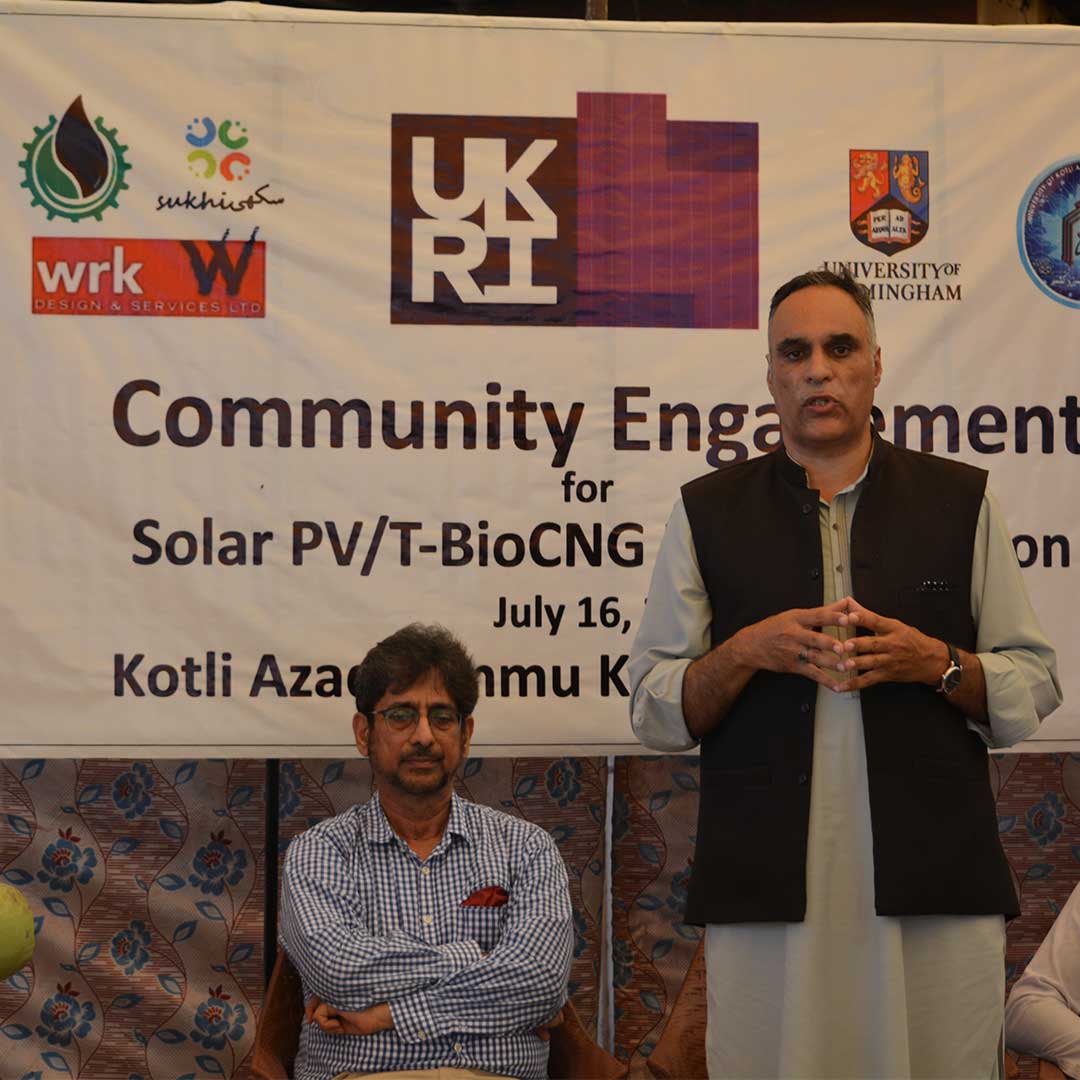CLIMATE CHANGE
Energy-Efficient Stoves for Rural Communities
The Sukhi Development Foundation (Sukhi) embarked on a transformative project, funded by the United States Agency for International Development (USAID), with the mission of fostering social entrepreneurship and promoting sustainable energy practices in rural communities of Azad Jammu Kashmir (AJK), Pakistan. The project, titled: “Encouraging Social Entrepreneurship through demonstration and dissemination of energy-efficient stove technology,” aimed to empower local communities by introducing and advocating the use of energy-efficient stoves, specifically the smart wood-stove, as a clean, safe, and affordable cooking solution with substantial economic, social, and environmental benefits. The cornerstone of the project was the training and skill development of approximately 143 technicians in the manufacture and maintenance of advanced fuel-efficient stove technology. These technicians were not only equipped with the knowledge to build these stoves but were also empowered to establish their own businesses, thereby creating economic opportunities within their communities. The project aimed to raise awareness and promote the adoption of energy-efficient stoves by conducting extensive demonstrations and disseminating information about their advantages. Local communities were educated about the economic, health, and environmental benefits of these stoves, which played a crucial role in changing cooking practices.
By encouraging the development of micro-enterprises centered around the manufacture and sale of energy-efficient stoves, the project bolstered the concept of social entrepreneurship. One of the remarkable achievements of the project was the preservation of the forest reserves in the Poonch Division of AJK. The adoption of energy-efficient stoves led to reduced fuelwood consumption, which, in turn, help conserve precious forest resources, mitigated deforestation, and minimize the environmental impact of traditional cooking practices.
The use of energy-efficient stoves significantly improve indoor air quality, as it reduces the emission of harmful pollutants associated with traditional open-fire cooking. This led to improved respiratory health and overall well-being within the rural communities.
Establishing Solar Energy Enterprises
Sukhi partnered with the United States Agency for International Development (USAID) to launch an ambitious project titled “Supporting Youth for Establishing Solar Energy Enterprises in Mirpur, Azad Jammu Kashmir (AJK), Pakistan.” The project aimed to empower young individuals in the Mirpur district of AJK by providing them with the knowledge and skills necessary to establish and operate solar energy enterprises. With a focus on training 165 technicians, including 35 women, from rural and suburban areas, this initiative sought to promote clean and sustainable sources of energy in the region. The project was built on the foundation of advanced solar technology training, equipping 165 young technicians with the expertise required for harnessing and maintaining solar energy systems. These technicians emerged as local experts, capable of driving the adoption of solar energy solutions within their communities. Notably, the project displayed a commitment to gender inclusivity by training 35 women as solar technicians. This not only empowered women in the field of renewable energy but also contributed to gender equality and social progress in the region.
By concentrating efforts on individuals from rural and suburban areas of the Mirpur district, the project addressed the energy needs of communities that often lack access to reliable and clean sources of power. This focus brought clean energy solutions to those who needed them the most. The project’s overarching goal was to advance the use of clean, sustainable, and renewable energy sources in Mirpur district. Solar energy was identified as a viable alternative to traditional energy sources, reducing the reliance on fossil fuels and mitigating the environmental impact. Through training, gender inclusivity, and the promotion of clean energy sources, the project not only empowered young technicians but also offered a sustainable solution to the region’s energy needs. This initiative represents a significant step towards a cleaner, more equitable, and more prosperous future for the people of Mirpur, AJK, Pakistan.
Solar PV/T-Biomethane Energy Solution
Sukhi is working on an energy project in Kotli, Azad Jammu Kashmir (AJK), Pakistan with the financial assistance of Innovate UK. The project aims to investigate the feasibility of a novel Waste to Energy system to produce biogas which will be further upgraded and separated into biomethane and carbon dioxide. The biomethane will be used for cooking and heating while CO2 will be used for wide range of industrial applications. Also, the proposed system will produce nitrogen enriched bio-fertilisers that can be used for soil enhancement, increased land fertility and food production. This region faces challenges in accessing reliable and clean energy sources, especially in rural areas.
The waste to energy project responds to this need by exploring a novel approach to not only provide clean energy for cooking and heating but also contribute to industrial applications. The initiative aligns with the broader goal of improving energy access, efficiency, and reducing dependency on traditional, environmentally detrimental energy sources.
By utilizing biowaste for biogas production, the project contributes to mitigating climate change. The conversion of biowaste into biomethane for household use reduces reliance on fossil fuels, subsequently lowering greenhouse gas emissions. The sustainable approach adopted in this project aligns with global efforts to transition towards cleaner energy alternatives, thereby positively impacting the fight against climate change.
Traditionally, many households in this region rely on wood and other biomass for cooking and heating, contributing to deforestation and environmental degradation. The use of biomethane from the Waste to Energy system will significantly reduce the demand for wood, alleviating pressure on local forest resources. This shift towards a more sustainable energy source will help in preserving biodiversity, maintaining ecological balance, and combating deforestation.

